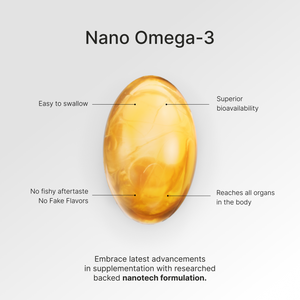As we age, occasional forgetfulness or slower thinking is normal. However, Alzheimer Disease involves more significant changes in memory and behavior that interfere with daily life.
Understanding these differences can help families recognize when to seek professional guidance, so we’re going to go in depth on this topic and cover a few ways you can protect the brain you have.
What is Alzheimer's Disease?
Alzheimer's Disease is a complex neurological condition that progressively affects brain function. Think of your brain as a vast network of highways connecting different regions. In Alzheimer's, these highways gradually develop problems that interfere with communication between brain cells.
The condition involves two key changes in the brain: First, abnormal protein deposits called plaques build up between nerve cells. Second, twisted fibers called tangles form inside the cells. Together, these changes disrupt normal brain function and eventually cause cells to die.
This damage typically begins in areas controlling memory and thinking, which is why early symptoms often involve forgetfulness. As the condition progresses, it affects other brain regions controlling language, reasoning, and even basic functions like walking and swallowing.
The impact on daily life is significant:
- Memory loss becomes more than just forgetting names
- Planning and organizing become increasingly difficult
- Familiar tasks grow challenging
- Time and place confusion becomes common
- Communication skills decline
- Personality changes may occur
Understanding this progression helps explain why Alzheimer's requires different support strategies than normal aging. While an aging person might benefit from simple memory aids, someone with Alzheimer's needs comprehensive support systems as their cognitive abilities change.
Most importantly, Alzheimer's isn't a normal part of aging. While age is the greatest known risk factor, the condition involves specific brain changes that go beyond typical aging processes. This distinction helps families understand why professional evaluation is important when they notice significant changes in their loved ones' cognitive abilities.
Key Differences Between Alzheimer's and Normal Aging
Unlike normal aging's occasional "senior moments," Alzheimer's causes systematic changes that worsen over time. Picture the difference between occasionally misplacing your keys (normal aging) versus putting keys in the refrigerator and not remembering how they got there (potential Alzheimer's indicator).
Memory and Learning
Normal Aging:
- Occasionally forgetting names or appointments but remembering later
- Being able to follow written/spoken directions
- Learning new things with practice
Alzheimer's:
- Forgetting recently learned information
- Repeating questions frequently
- Difficulty following familiar recipes or directions
- Increased reliance on memory aids
Daily Tasks
Normal Aging:
- Making occasional mistakes when balancing a checkbook
- Needing help with complex electronics occasionally
- Maintaining independence in daily activities
Alzheimer's:
- Difficulty managing finances
- Unable to follow familiar routines
- Struggling with basic household tasks
- Getting lost in familiar places
Communication
Normal Aging:
- Sometimes having trouble finding the right word
- Occasionally losing track in conversations
- Maintaining social connections
Alzheimer's:
- Frequent word-finding difficulties
- Stopping mid-conversation without ability to continue
- Withdrawing from social activities
- Using incorrect words for objects
Tips for Supporting Brain Health
While we can't control all factors affecting brain health, certain lifestyle choices may support cognitive function in those dealing with Alzheimer’s as well as normal aging.
Sleep and Rest
Quality sleep is essential for memory consolidation. During deep sleep, your brain processes and stores memories from the day, much like a librarian organizing books. Aim for 7-8 hours of uninterrupted sleep nightly. Create a relaxing bedtime routine, maintain consistent sleep hours, and ensure your bedroom is dark, quiet, and cool.
Physical Activity
Regular exercise supports brain health through increased blood flow and oxygen to the brain. The recommended 150 minutes of moderate activity or 75 minutes of vigorous activity weekly can be broken into manageable chunks. Activities like walking, swimming, or dancing are excellent choices. Additionally, strength training 2-3 times per week supports overall brain health, and it’s great to include balance and coordination activities. Try to stay socially active through group activities.
Mental Engagement
Like muscles, your brain needs regular exercise. You could try brain games and puzzles, and reading something challenging can also be beneficial. Learning new things is a great way to enhance your brain function. This could include learning a new instrument, dancing with a partner, or anything else that interests you. Also, don’t forget about social interaction and meaningful conversations, which are both incredibly important for brain health.
Nutrition
Your brain requires specific nutrients to function optimally, so watching your diet is very important. Focus on colorful fruits and vegetables rich in antioxidants (pomegranates, berries, leafy greens). Healthy fats from sources like avocados, nuts, and fish are also important, and adequate hydration is necessary. We recommend drinking half your body weight in ounces of water daily, so if you weigh 150 pounds, that means you’ll drink 75 ounces throughout the day.
Another thing to consider is increasing the omega-5 fatty acids you consume. Research indicates pomegranate compounds (rich in omega-5, also called Punicic Acid) may benefit short-term memory formation and retention. These effects appear linked to their ability to support the formation of new neural connections, potentially helping maintain normal cognitive function as we age.
When to Seek Professional Guidance
Consider consulting a healthcare provider if you notice:
- Significant memory changes affecting daily life
- Difficulty with familiar tasks
- Changes in personality or behavior
- Confusion about time or place
- Problems with language or communication
Remember, early professional evaluation is important for proper support and care planning. If you feel that you, a friend or a family member are struggling with memory issues, don’t wait to be evaluated.
The differences between Alzheimer’s Disease and normal aging can be subtle and easily missed. If something feels off, it’s worth digging deeper since early intervention is so important.
Medical Disclaimer
The information provided on this website is for educational purposes only and is not intended as medical advice. This blog or the writer is not a licensed healthcare professional, and the content should not be used as a substitute for professional medical diagnosis, treatment, or advice. Always consult with your physician or other qualified healthcare provider before starting any new treatment or making any changes to your healthcare routine.









